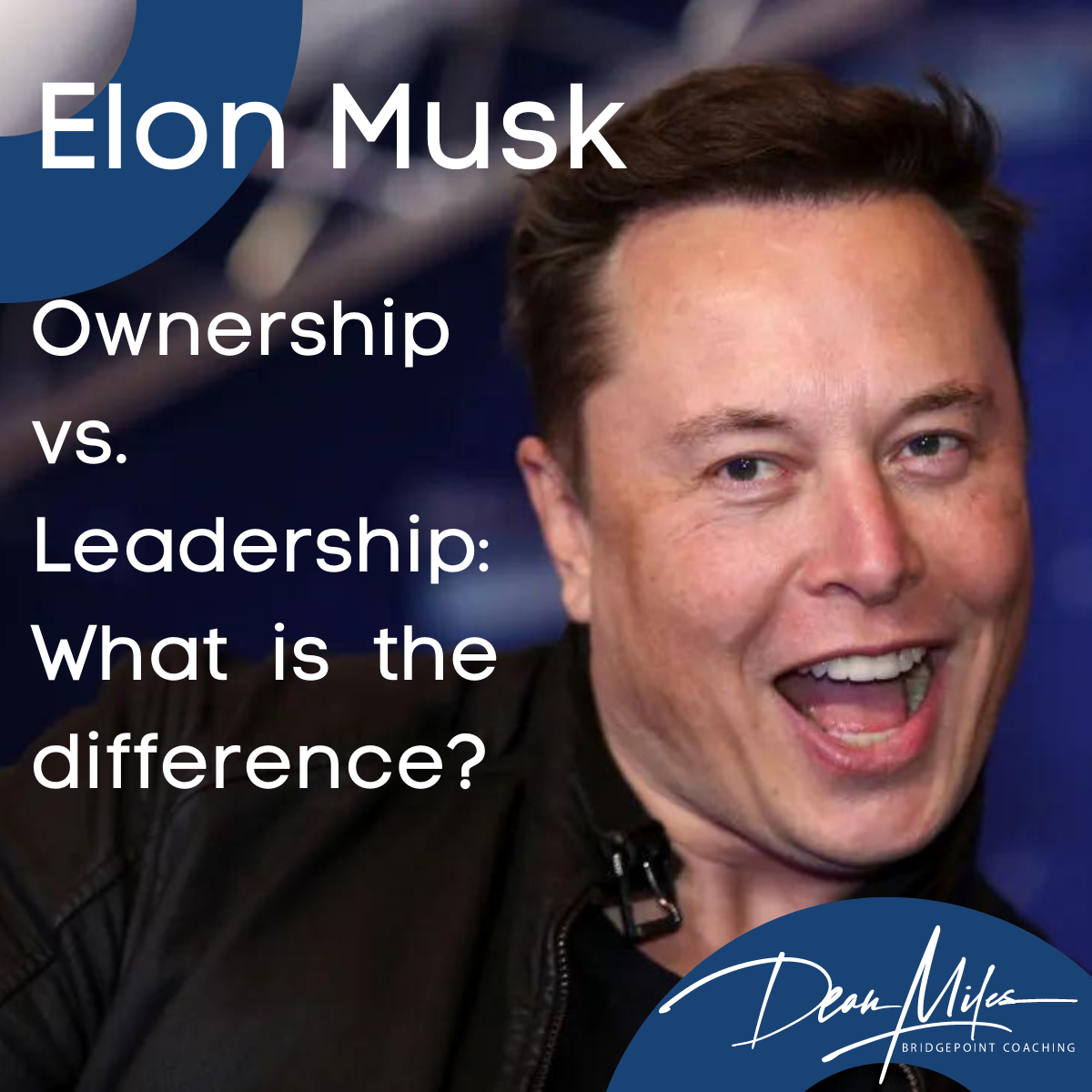Nov28

Elon Musk is one of the most successful entrepreneurs of our time, and his journey to success is inspiring. But while he’s been celebrated for his accomplishments, his behavior has been polarizing. A significant source of contention is how Musk runs his businesses and interacts with employees. He’s often accused of acting like an owner, not a leader.
Ownership implies a sense of control over outcomes, whereas leadership suggests a sense of responsibility for those outcomes. Owners are focused on results, but leaders focus on people and processes that lead to those results. For example, owners will often push their teams to work harder or faster to achieve an end goal, while leaders will provide guidance and support to help their teams reach those goals sustainably.
Elon Musk's leadership style is often characterized by his "hands-on" approach to business management. He's known for being highly demanding of himself and others, regularly pushing boundaries and taking risks in pursuit of ambitious goals. His focus on results has often led him into conflicts with employees who may be trying to follow established processes or maintain specific standards within their organizations - something which he's generally not willing to do if it hinders progress towards the ultimate goal. This type of ownership mentality can be effective in certain situations but can also create tension between team members and even damage company morale if not appropriately managed.
In today's competitive business environment, leaders must balance ownership and leadership to maximize performance without sacrificing employee satisfaction or ethical standards. Leaders should recognize when they need to take full ownership of a situation or project and when they need to step back and allow their team members more autonomy to feel empowered and engaged in achieving the desired outcome. While Elon Musk's approach may have been successful for him, it may only be suitable for some types of organizations or situations. So leaders must understand the difference between ownership and leadership before deciding how to manage their teams or projects.
Elon Musk is undoubtedly one of the most successful entrepreneurs of our time, and we can learn from his journey - both good and bad - as we strive towards success ourselves. Leaders must recognize that there is a difference between ownership mentality (which focuses on results) and authentic leadership (which focuses on people). Understanding this distinction can help us create an environment where employees feel valued, respected, and appreciated while striving towards ambitious goals together as a team. Doing so requires striking a balance between ownership mentality and authentic leadership –which every leader must strive towards if they hope to succeed in today’s competitive business world.
By Dean Miles
Keywords: Business Continuity, Mental Health, Startups
 The Orchestra Needs a Conductor: Why Multi-Model Agents Require H2E Governance
The Orchestra Needs a Conductor: Why Multi-Model Agents Require H2E Governance The Role of Memory in Modern-day Business
The Role of Memory in Modern-day Business The Architectures of Permanence: A Comparative Analysis of the "Big Three" AI Strategies (2026)
The Architectures of Permanence: A Comparative Analysis of the "Big Three" AI Strategies (2026) Friday’s Change Reflection Quote - Leadership of Change - Change Leaders Enable Generational Advancement
Friday’s Change Reflection Quote - Leadership of Change - Change Leaders Enable Generational Advancement The Corix Partners Friday Reading List - February 27, 2026
The Corix Partners Friday Reading List - February 27, 2026